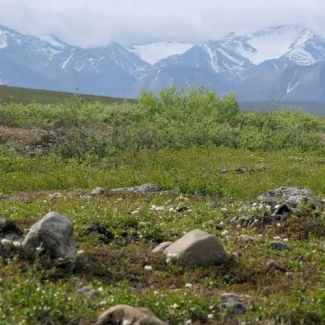Research will Compare Landscape Responses to Climate Variations

MBL Senior Scientist Edward Rastetter has received a grant from the National Science Foundation to study the responses of several natural, land-based ecosystems to variations in climate and landscape disturbances.
Unlike agricultural ecosystems that rely heavily on an external supply of nutrients through fertilizer application, most natural terrestrial ecosystems, such as forests, prairies, and tundra, rely almost exclusively on internally recycled nutrients to support plant production. In these natural ecosystems, the supplies of nutrients such as nitrogen and phosphorus from external sources -- such as weathering bedrock and deposition in rain and dust -- are so slow that they represent less than 5 percent of the annual plant requirements. Instead, these ecosystems accumulate nutrients over thousands of years and entrain them into their internal nutrient cycles.
This project will compare and contrast various types of ecosystems, from grassland to forest, from tropical to arctic, to assess how these ecosystems accumulate nutrients over time and how their dependence on recycled nutrients affects their responses to climate variation, elevated carbon dioxide in the atmosphere, and disturbances like wildfire, biomass harvest, or storm damage. The project will further advance the theory of resource optimization and element interactions in terrestrial ecosystems, and evaluate the potential of carbon and nutrient sequestration or loss across the globe.
